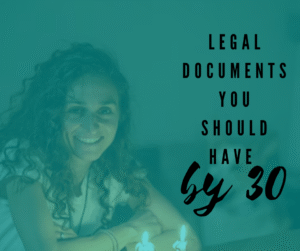Mums, money + the motherlode: Why every mum needs an estate plan
Being a mum means juggling about 500 things at once—lunch boxes, school runs, (paid an unpaid!) work and the occasional tantrum (yours or the kids’). And while you’re busy living, it is very easy to put off your estate planning. And we get it—thinking about a will isn’t exactly as fun as planning a birthday party or a family holiday but here’s the thing: having an estate plan is one of the most important ways you can look after your family.
Why every mum needs an estate plan
Whether you’re a first-time mum, a single parent, or have a whole tribe running around, having a solid estate plan means that if something happens to you, your kids are looked after exactly the way you want.
Here’s why estate planning is a non-negotiable for mums:
- You decide who looks after your kids – If you don’t name a guardian in your will, the courts will decide for you.
- You control your finances – Without an estate plan, your assets may not go where you want them to.
- You avoid family disputes – Clearly stating your wishes in both your Will and having conversations with your loved ones can prevent arguments and legal battles.
- You protect your children’s future – Estate planning can help ensure financial stability for your kids.
What happens if you don’t have a will?
Let’s imagine Sarah, a 35-year-old mum of two. She always meant to make a will but never got around to it. When she tragically passed away unexpectedly, her partner had to go through the legal nightmare of proving he was entitled to manage her deceased estate. Worse, there was no guardian named for their children, so the court had to step in.
Not having a will doesn’t mean your assets disappear—it just means the law decides who gets what. And the law doesn’t always make decisions that reflect your personal wishes.
Key estate planning documents every mum needs
-
A Will – your blueprint for your family’s future
Your will is the foundation of your estate plan. It states who inherits your assets, who looks after your kids, and who will manage your estate (your executor). A legally valid will ensures your wishes are followed and prevents unnecessary stress for your loved ones. If you have young children, your will should also outline how their inheritance will be managed until they reach adulthood, or the age you nominate.
-
Testamentary guardianship – choosing who raises your children
If your children are under 18, you need to nominate a guardian in case something happens to you. Without this, the court may need to decide who takes care of them, which may not align with your preferences. Choose someone who shares your values, has a stable home environment, and is capable, willing and prepared to raise your kids.
-
Power of attorney – managing your finances if you can’t
A Power of Attorney allows someone you trust to handle financial matters on your behalf if you become incapacitated due to illness or injury. This includes paying bills, managing investments, and dealing with legal matters including signing documents for you. Without a Power of Attorney, your loved ones may have to go through the Tribunal system for financial management orders so that someone, or the Public Trustee, is given authority to deal with your finances.
-
Enduring guardianship – making medical and life decisions
An Enduring Guardianship document allows you to appoint someone to make medical and lifestyle decisions for you if you are unable to do so yourself. This can include decisions about medical treatment, living arrangements, and day-to-day care. It ensures that your healthcare wishes are made by the persons you trust the most to make the same decisions you would make for yourself if you could.
-
Testamentary Trust – protecting your kids’ inheritance
A testamentary trust will is a special will where a trust can be established through your will that provides controlled access to your children’s inheritance. It ensures that assets are managed responsibly and can protect your estate from creditors, divorce settlements, or reckless spending by young beneficiaries. This is especially useful if your children are minors or if you want to provide ongoing financial security and tax benefits for them, and in future their own children.
Common estate planning mistakes mums make
Even the most organised mums can miss a few things. Here are the top mistakes to avoid:
-
Not updating your will regularly
Life changes fast—marriages, divorces, new children, and financial shifts all impact your estate plan. If your will isn’t up to date, it might not reflect your current wishes. Aim to review it every couple of years or after any major life changes.
-
Forgetting about superannuation + life insurance
Superannuation and life insurance don’t automatically go through your will and estate. You need to nominate beneficiaries in your death benefit nomination to ensure these funds go to the right people. Without a valid death benefit nomination, your super fund trustee will need to decide where your money goes.
-
Not considering a backup executor or backup guardian
It’s wise to name at least one backup guardian and executor in case your first choice is unable to take on the role. Life circumstances change, and it’s essential to have a Plan B, especially if you have forgotten to update your Will.
-
Assuming your partner automatically gets everything
Many people believe their spouse will automatically inherit everything if they pass away. However, intestacy laws may distribute your estate differently, especially if you have children from a previous relationship or complex family dynamics.
-
Not planning for blended families
If you have stepchildren or children from multiple relationships, estate planning is even more critical. Without a well-structured plan and up-to-date documents, there could be disputes over inheritance or unintended financial consequences.
-
Not storing your legal documents properly
Your estate planning documents should be stored securely but also be accessible when needed. Many people forget to tell their loved ones where their original will and other documents are kept, which can lead to unnecessary delays and legal complications.
FAQs about estate planning for mums
Do I really need a will if I don’t have many assets?
Yes! Even if you don’t own property, your will is the legal blueprint that authorises who takes care of your kids, looks after your assets, and deals with all the legal paperwork to receive and close off any savings, investments, cars, etc.
Can I name my parents as guardians of my kids?
Absolutely. But consider their age and ability to care for young children long-term. It’s wise to have another backup guardian as well in case your parents aren’t able to take on a guardian role at the time.
What’s the difference between a Power of Attorney and Enduring Guardianship?
A Power of Attorney manages your legals and financials, while an Enduring Guardian makes health and personal care decisions on your behalf.
How often should I update my estate plan?
Every two years or after major life changes, like having another child, getting married, or separating from a partner.
Final thoughts
Mums do everything to protect their children—but estate planning is the ultimate safety net. It ensures that if the unexpected happens, your kids are cared for, your assets go to the right people, and your wishes are respected.
If you’re ready to tick ‘estate planning’ off your to-do list, send us an email at [email protected], give us a call on 📞 1300 034 487 or book in a free 10 minute chat here. We’ll make the process easy, straightforward, and stress-free—so you can focus on the million other things on your plate!
We’ll look after you.






